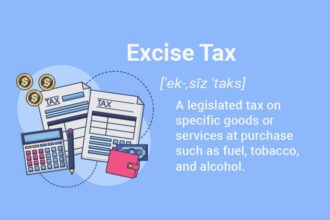Private vs. Public Company: An In-Depth Comparison
In the ever-evolving landscape of business, companies come in various shapes and sizes, each with its unique characteristics and implications. Two primary classifications of companies that often spark interest and debate among investors, entrepreneurs, and analysts are private and public companies. This article will delve into the key differences between private and public companies, shedding light on their distinct features, advantages, disadvantages, and the factors to consider when deciding which path to take.
Introduction

Starting or investing in a company involves crucial decisions, and one of the earliest choices is determining the company’s structure—private or public. Each path has its distinct advantages and drawbacks, impacting everything from ownership to financial management. Let’s begin our exploration by examining the ownership structure of these entities.
Ownership Structure
Private Company: In a private company, ownership is often concentrated among a few individuals or a closely-knit group. The shares are not publicly traded, making it less accessible to external investors.
Public Company: On the other hand, a public company’s ownership is distributed among a vast number of shareholders, and its shares are traded on a public stock exchange, enabling anyone to buy or sell them.
Access to Capital
Private Company: Private companies rely on a smaller pool of investors, such as family members, venture capitalists, or angel investors, to raise funds. Access to capital may be more restricted.
Public Company: Public companies have easier access to capital through the issuance of stocks and bonds to the general public. This can facilitate substantial growth and expansion.
Financial Disclosure
Private Company: Private companies are not obligated to disclose their financial information to the public. Financial transparency is limited and confined to internal stakeholders.
Public Company: Public companies are required to provide regular and detailed financial disclosures to shareholders and regulatory bodies. This transparency can enhance investor trust but also expose the company to increased scrutiny.
Regulatory Requirements
Private Company: Private companies face fewer regulatory requirements, allowing for more flexibility in decision-making and operations.
Public Company: Public companies must adhere to stringent regulatory standards, including Securities and Exchange Commission (SEC) filings and compliance with stock exchange rules.
Decision-Making Authority
Private Company: Decision-making authority in private companies typically rests with a smaller group of owners or a single entity, allowing for quicker and more personalized decision-making.
Public Company: Public companies involve a more complex decision-making process, with input from a diverse set of shareholders and a board of directors.
Profit Distribution
Private Company: Profits in private companies are distributed among a limited number of shareholders, often in proportion to their ownership stakes.
Public Company: Public companies distribute profits among a larger number of shareholders through dividends or reinvestment in the company.
Management and Governance
Private Company: Private companies have more control over their management and governance structures, enabling them to align with their specific goals and values.
Public Company: Public companies often face greater scrutiny in their management practices, with boards of directors representing shareholders’ interests.
Market Liquidity
Private Company: Private company shares are not easily tradable, leading to lower market liquidity.
Public Company: Public company shares are highly liquid and can be easily bought or sold on the stock exchange.
Valuation
Private Company: Valuing private companies can be challenging due to limited information and market comparables.
Public Company: Public companies have a market-determined valuation based on their stock price and market capitalization.
Tax Implications
Private Company: Private companies may have more flexibility in tax planning and may benefit from certain tax advantages.
Public Company: Public companies are subject to more extensive tax regulations, which can impact their tax liabilities.
Risk Exposure
Private Company: Private companies have lower exposure to market volatility and public scrutiny but may face greater risks due to limited access to capital.
Public Company: Public companies are more exposed to market fluctuations and shareholder activism but have greater access to capital resources.
Longevity and Stability
Private Company: Private companies may have longer-term stability as they are not subject to the pressures of quarterly earnings reports and stock price fluctuations.
Public Company: Public companies must navigate the challenges of meeting shareholder expectations and maintaining stock performance.
Initial Public Offering (IPO)
Private Company: Private companies can choose to go public through an IPO, which involves significant regulatory and financial considerations.
Public Company: Public companies may decide to go private through a process known as delisting, which involves buying back shares from the public.
Conclusion
Choosing between a private and public company structure is a pivotal decision that profoundly impacts a business’s trajectory. Private companies offer more control and privacy but have limited access to capital. In contrast, public companies enjoy greater access to funds but face increased regulatory requirements and public scrutiny. The choice ultimately depends on a company’s goals, resources, and risk tolerance.
Frequently Asked Questions (FAQs)
What are some famous examples of private companies?
Notable private companies include Cargill, Koch Industries, and Mars, Inc.
Can a public company become private again?
Yes, public companies can go private through a process known as delisting.
How does a public company go public through an IPO?
An IPO involves issuing shares to the public for the first time, typically with the assistance of investment banks.
What are the tax advantages of private companies?
Private companies may benefit from tax advantages such as greater flexibility in tax planning.
Which type of company is more suitable for startups?
The choice between private and public largely depends on the startup’s growth plans and funding needs.
The Bottom Line
In conclusion, understanding the distinctions between private and public companies is crucial for making informed business decisions. Each structure has its merits and drawbacks, and the right choice depends on your company’s unique circumstances and long-term goals.





